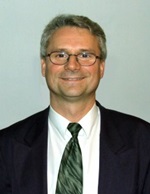Description
The Evangelical Pentecostal Church (EPC) in Croatia is a fusion of two leading Christian movements in the 20th and 21st centuries: Evangelical and Pentecostal. The Evangelical movement emphasizes Holy Scripture: the Bible as the authority for Christian belief and living, while the Pentecostal movement emphasizes the work of the Holy Spirit in the lives of believers and the Christian community, which implements the truths from the Bible in its everyday experience.
As part of the worldwide evangelical and Pentecostal family, the Evangelical Pentecostal Church in Croatia is an independent Christian community, connected by Christian bonds of love with many other Christian churches in the local area and in the world.
Croatia has more than 40 churches and over 30 pastors. All told there are more than 2,000 believers. They have sent missionaries to Bosnia and Herzegovina.
The highest spiritual and ruling body of the Evangelical Pentecostal Church in Croatia is the Council. It is comprised of representatives from local churches, mission stations, and church institutions. The executive body of the EPC Council is the presbytery, consisting of regional presbyteries, a president, vice president, and general secretary.
Executive Leadership
Re-elected in 2015, Damir Spoljaric has been the president for fifteen years.
 President Damir Spoljaric
President Damir Spoljaric
Evangelical Pentecostal Church
Cvjetkova 32
31000 Osijek
Croatia
385 31 494 192
[email protected]
Visit Croatia at www.epc.hr.

